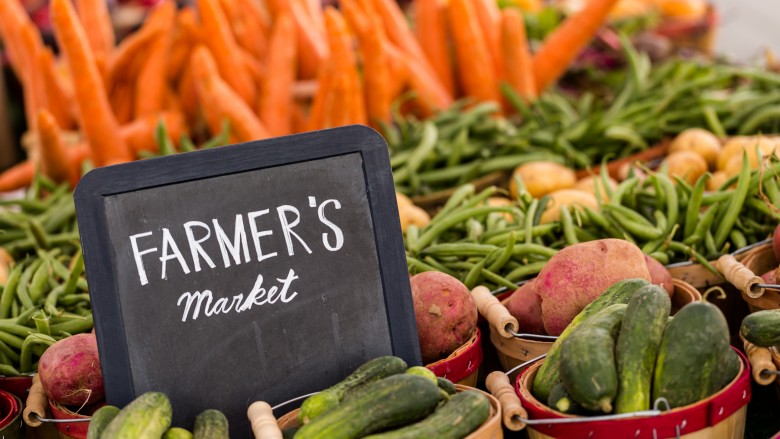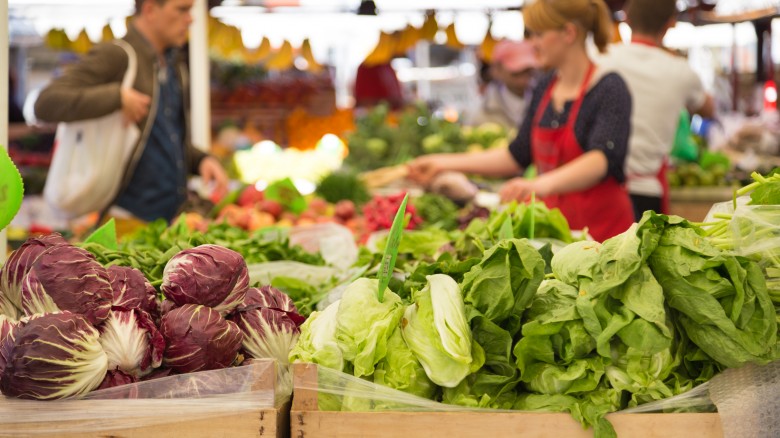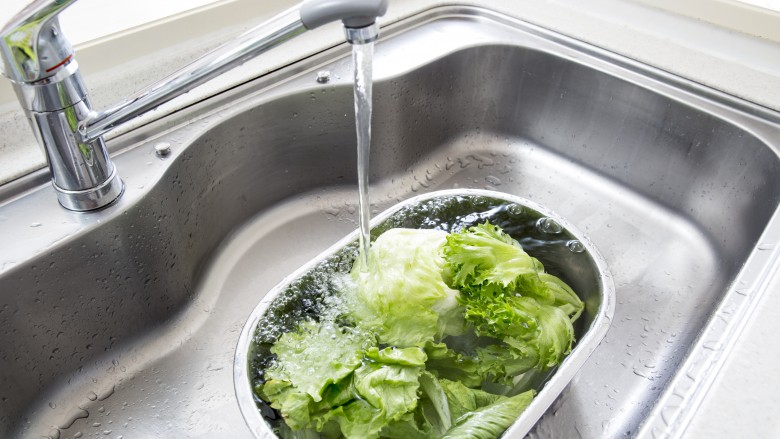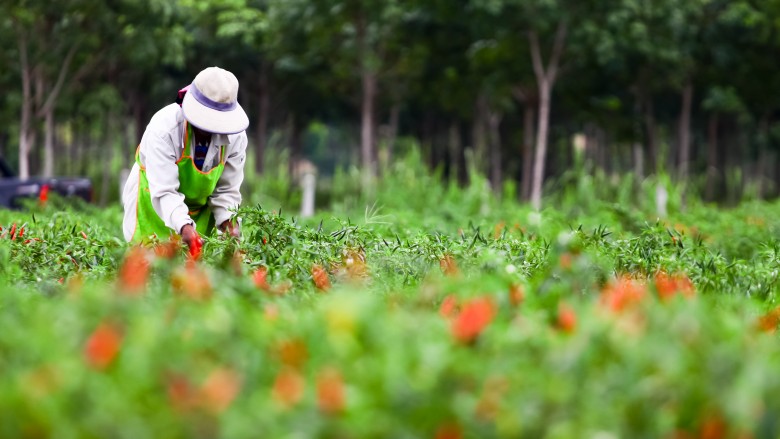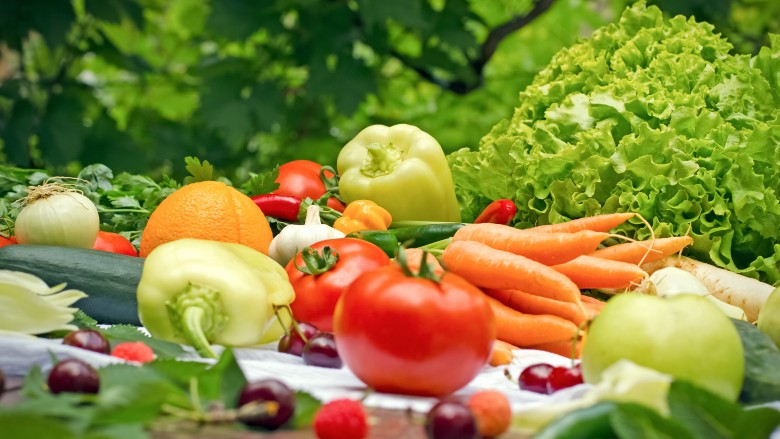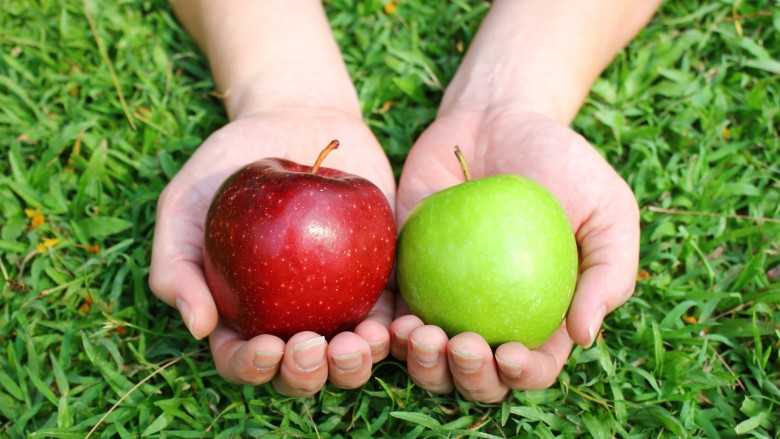What Everyone Gets Wrong About Organic Food
intro
Over the past few decades, the idea of buying organic has become increasingly trendy. It's more expensive, sure, but common wisdom says this is food that's been raised without pesticides, without any questionable tampering or modification, in a way that's better for the environment, and by farmers who are creating a healthier, more nutritious, and tastier product.
It sounds great, but unfortunately, a lot of it is absolutely untrue. These are some of the things everyone gets wrong about organic food.
There are no pesticides in organic farming
Ask anyone why they're going organic, and at the top of the list is probably the idea that there are no pesticides used in organic farming. That's 100 percent not true, though.
Organic farmers can definitely use all sorts of pesticides and fungicides on their crops — the restrictions come when you look at where those pesticides came from and how they were processed. The USDA keeps a list of different chemicals that are approved for use on organic crops, and these are compounds that can be certified organic because they're made from naturally-occurring substances that don't go undergo much processing. But just because something's all-natural, doesn't mean it's not toxic.
Take spinosad (which comes from soil bacteria), pyrethrin (extracted from chrysanthemums), and azadirachtin (which comes from the Asian neem tree). They're all natural, they're all approved for organic farmers — and they're all on another list the EPA keeps of slightly toxic compounds.
These naturally-occurring compounds aren't the only ones on the approved list, either. Organic farmers can — and do — use other pesticides that include things like copper. That's a common one that's used to control bacterial and fungal infections in plants, and over time it can build up in the soil and reach a concentration level that's deadly for plants and soil-dwelling critters.
Organic food is healthier
Also high on the list of reasons you might opt to pay more for an organic product is the persistent belief that organic foods are healthier and more nutritious than non-organic foods and sadly, that's not true, either.
In 2012, researchers from Stanford University's Division of General Medical Disciplines took a look at the differences between the nutritional values of organic and non-organic foods, and they found the answer was a resounding, "not a whole heck of a lot." What they did find was a lot of conflicting studies that had been done, that only served to confuse the issue further. But their own research shows there was no real difference in the vitamin or nutrient content in food that had been raised organic, as opposed to that which came from a standard farm. Across the board, they only found one mineral that was actually higher in organic foods, and that was phosphorus. It's not as big of a victory as you might think, either, as everyone gets more than enough phosphorus in their regular diet anyway.
Organic milk is better for you
There are a huge number of options out there when it comes to milk products, and the beliefs about organic milk are right in line with the beliefs about other organic foods: we all think it's better for you. But that's not necessarily the case — even in light of evidence that seems to suggest otherwise.
In 2016, there was a study published in the British Journal of Nutrition that reported organic milk has higher levels of omega-3 fatty acids than non-organic milk, and even those that aren't sure what those fatty acids do have heard they're a good thing. The study said organic cows' milk had 50 percent more omega-3 fatty acids than other types of milk. This sounds like a huge improvement, but omega-3 fatty acids are linked to the fat content in milk, as the name suggests. Since whole milk is about 4 percent fat and other, lighter versions are even less, this 50 percent increase in the good stuff doesn't really have the impact you might be expecting. If you were hoping for some data that would make your choices in the dairy aisle easier, that doesn't really make enough of a difference to be factored in.
Certifications are the same across the board
If you swear by your local farmer who advertises his produce as organic, you might assume he's being held to the same standards as the big guys — but that's probably not the case.
The USDA has a lot of rules and regulations when it comes to certifying organic products, but they have a whole list of exceptions, too. At the top of the list are any agricultural operations who sell less than $5,000 a year. Not only do they not have to be certified, but they're perfectly within their right to advertise their products as organic. The only thing that they can't do is use the official USDA seal on their products, but otherwise, they're free and clear to use the term as long as they follow all the guidelines, and maintain at least three years of records. These small-scale farmers aren't allowed to supply organizations who are certified organic with product, but aside from that, it might not be as regulated as you think.
There's less worry about illness and foodborne pathogens with organic
The idea that organic is healthier usually extends to the idea that organic foods are less-likely to become infected with various food-borne viruses and bacteria — a misconception that can be deadly. In 2011, Europe was hit by an E. coli outbreak that left at least 31 people dead and thousands sick. The culprit was organic bean sprouts from a certified farm in Germany. If that's not enough to make you think twice about eating organic food right out of the fridge, a 2016 report from the Centers for Disease Control and Prevention officially stated the same food safety practices should be followed with organic food as with non-organic.
The report came from the CDC's Foodborne Disease Outbreak Surveillance System. When they looked at all the reports of food-related illness outbreaks, they identified 18 large-scale ones between 1992 and 2014 that were linked to organic products. Collectively, those outbreaks made hundreds of people sick, sent hundreds to the hospital, and killed at least three people.
When other studies have looked at salmonella in free-range and organic chickens, they found that it was just as common in these types of products as those that were conventionally raised. That's all led to warnings about following the same food safety precautions with organic products as non-organic, something that might seem to fly in the face of popular belief.
Organic farming is better for the environment
It's estimated that about 40 percent of the planet's surface is dedicated to food production, so the efficiency of those fields and orchards is incredibly important. Since one of the claims often made about organic foods is that they're better for the planet, that seems to imply that they're going to be more efficient. Unfortunately, that's not the case, as found in a meta-analysis done in a joint project between the University of Minnesota and McGill University. When they compiled data from a series of smaller studies, they found that overall, organic farms were about 25 percent less productive.
For a planet with an ever-expanding population, that's not the great news we might have been hoping for. They did find there was a significant difference based on the type of crops we're talking about. When it comes to things like fruit trees, legumes, and tomatoes, yield was about the same no matter what methods were used. When it came to grains and other vegetables, though, that's where the problems started. Since organic farmers aren't giving their crops the same extra kick of nitrogen other farmers can, their yield is going to be lower. While that's good in terms of preventing agricultural pollution, the increased footprint needed to sustain organic farms negates some of the positive findings.
Organic food always tastes better
There isn't a lot that's clear-cut about organic versus non-organic, and taste is probably the most difficult to gauge. One of the benefits touted by those who regularly buy organic is the claim that the food just tastes better, but studies have found it's not nearly that simple.
In 2011, a community watchdog called Which? conducted a study to find out which people really preferred: organic or non-organic tomatoes. A panel of 194 food experts were given a blind taste test, and they never told their experts what they were really studying. By the end of the study, the conventionally-grown, non-organic tomatoes had been rated juicier, stronger, and sweeter than their organic counterparts. Cornell University researchers suspect there's something going on called the "halo effect". That basically means it was the idea of organic that people seemed to find most attractive, leading to a belief in the superior qualities of the product.
Buying organic helps keep small farmers comfortable
Sadly, this one is so far from the truth it's tragic. Changes in the way records are kept have made tracking the success of small farms difficult, but in 2010, Washington State University found that while five new farms were certified organic that year, 18 gave up their certification. Between 2003 and 2005, 523 farmers dropped out of California's organic program, and it's a trend that's continuing on the other side of the ocean. In 2015, The Guardian took a look at why so many of Britain's farms were giving up their organic certifications, and found it's simply a matter of survival. In order to stay afloat, organic farmers are faced with a choice: give up their organic status, or pass the price hikes on to consumers.
There are other problems facing organic farmers, too. While the initial cost of certification isn't unmanageable, maintaining the massive amount of records needed to keep that certification is a time-sink most farmers just can't manage. Others find themselves struggling to get smaller yields, fighting for a corner of the market... all while scraping by with little profits. There's a reason organic foods cost more, and that's simply that it costs more to grow. It's not enough for some farmers to make a living on, though, and that means some are choosing to remain uncertified, calling themselves things like "sustainable" instead.
Organic foods are sustainable foods
These days, you'll hear all kinds of things about how sustainability is key to our survival. It seems logical that something touted as being as good for the environment will be sustainable, too, but that's not the case at all with organic food.
In fact, there's one thing that prevents organic crops from ever being sustainable. In order to be certified organic, crops cannot have been genetically modified, and that includes selectively breeding strains that are resistant to disease and infection. When we keep planting and growing the same thing over and over again, our food supply becomes vulnerable. It happened in Ireland and caused the potato famine, wiping out a huge portion of the population. Organic and sustainable are far from being one in the same, as much as we might want them to be.
You should always buy organic when you can
There are a ton of studies out there on the benefits and disadvantages of buying organic, and even if you do your research, you'll find it's not as clear-cut as you probably think it ought to be. While some places give you lists of fruits and veggies you should always buy organic, other places will tell you all about the fruits and veggies that you shouldn't buy organic. But, you know now that even organic foods will contain some of these chemicals they're usually hyped up as not being exposed to. That makes it all much, much more complicated, especially when you factor in the increased cost and the fact that many people just can't afford the prices being charged for organic foods. At least now, though, you're a little more informed whether you're reaching for those organic apples or past them to their conventionally-raised counterparts.


